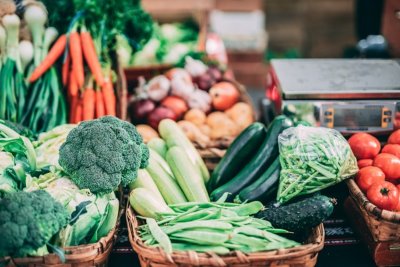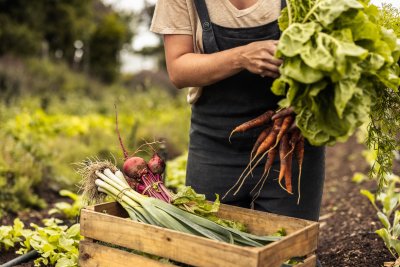Sustain alliance response to the Grocery Code Adjudicator Review
Part 1 - Statutory Review and Part 2: extending its remit Sent to BEIS January 10th, 2017
Who we are and background
1. Sustain is the UK alliance for better food and farming (www.sustainweb.org). It advocates food and agriculture policies and practices that enhance the health and welfare of people and animals, improve the working and living environment, enrich society and culture and promote equity. Our alliance of around 100 organisations works across a wide spectrum of food issues, including farming, countryside, environment, fishing and marine environment, poverty, trade, animal welfare and public health, together representing the interests of millions of people and the farmed environment.
2. Sustain runs an expert working party and sustainable farming initiative, focusing on improving the prospects for good jobs in farming and a more resilient rural economy – including better incomes, greater predictability, less vulnerability and volatility, and more favourable trading conditions – all aspects highly relevant to the Groceries Code Adjudicator (GCA) Review.
3. Sustain is also a founding member of the Groceries Code Action Network (GCAN) coordinated by Traidcraft, and involving the National Farmers Union, UK producer groups, Fairtrade Foundation, Feedback (the global food waste campaign), Friends of the Earth and others. Sustain fully supports the submission to the GCA Review by Traidcraft, on behalf of this GCAN group.
4. This is not a detailed submission but an overarching statement which reflects the experience and ideas of many of Sustain’s members and associates working on these issues. As an alliance, we are not in a position to provide detailed evidence of harm but we have encouraged our members and food and farming stakeholders we work with to engage with the GCA and to submit responses, particularly where they are involved in the supply chain.
Why Sustain is responding
5. Sustain and its members work to change the structural and economic factors that prevent farmers and their workers – here and overseas - from thriving and having decent livelihoods. This is so that they can produce food in a sustainable, healthy and ethical manner supported by the market. To this end we have joined with others to promote good practice as part of the Groceries Code Action Network and Sustainable Farming initiatives, to expose problems in the supply chain and to campaign to end unfair trading practices. The review of the Groceries Supply Code of Practice (GSCoP) and GCA provides a key opportunity to address on-going issues in the supply chain. We are also working in other ways to achieve a fairer system.
6. Sustain believes all farmers, workers, and businesses who sell into the UK market should be able to benefit from their work and enjoy a decent livelihood. Therefore we support the continuation of the GCA, which has improved how supermarkets purchase from their suppliers. We also want to see the GCA’s remit extended to help support fairer trading practices along the whole supply chain. In addition, leaving the European Union’s Common Agricultural Policy (CAP) and opening up trade agreements will present greater threats and vulnerabilities to some UK farms making strong supply chain regulation vital.
What Sustain proposes
7. To achieve the ends set out above, Sustain support calls on government to: I. Maintain the GSCoP and the GCA, and enhance the GCA’s capacity where needed II. Extend the scope of the GSCoP and GCA remit to cover manufacturers and suppliers along the food supply chain
8. We believe it is vital to maintain the Groceries Code Adjudicator. Sustain and many of our members vociferously supported calls for it to be established. Despite the short amount of time it has been in existence and its relatively limited capacity, the GCA has had a beneficial impact on some of the unhelpful practices then common in grocery supply chains, and has started to create a level playing field for fair trading practices to become the norm. The GCA has been able to effect change in the way the main supermarkets treat their suppliers. There is evidence that fewer of the suppliers currently covered by the GCA’s protection are reporting unfair dealings. The recent GCA investigation of Tesco, revealing breaches of the Code and the resultant remedial actions by Tesco, indicates that the GCA can do an effective job. Other examples of how the GCA has affected the practices of multiple retailers – such as intervention when Morrisons had demanded ‘lump sums’ from suppliers – suggest on-going effectiveness of the GCA. There is a strong case for continuing this work and making sure the GCA has enough staff and powers to investigate breaches of the Code and wider ongoing issues. There is a case for greater resources for enhancing the ability of the GCA to reach farmers and undertake generic investigations into unfair practices.
9. Currently the GCA can only oversee unfair practices between supermarkets and their direct suppliers. Sustain strongly supports calls for extending the remit of the GCA to protect indirect suppliers. It has become clear from the evidence base, and in our discussions with players in the supply chain, that indirect suppliers such as farmers, fishers, exporters and processors are all affected by unfair practices in the supply chain. The GCA cannot currently act on unfair trading practices – costs and risks – being passed down the supply chain to indirect suppliers. This major gap in the GCA scope is inconsistent and leaves indirect suppliers vulnerable to the unfair practices the main grocery retailers are required to avoid under the Code, such as late payments, last-minute changes of orders and requests for one-off ‘lump sum donations’. As those at the end of the chain are often SMEs – smaller businesses such as farmers or local processors – they are currently unable to reject unfair terms of trade or make a complaint. This leads to severe pressure on incomes, lost livelihoods, businesses failing, wasted food and ultimately loss of diversity and choice for consumers.
10. All of our comments relate to suppliers from both the UK and overseas. However, it is worth a separate note to highlight the overseas dimension. UK supermarket trading practices have an impact on the supply chain of overseas farmers, workers and the farmed environment. As a developed nation, the UK must strive to ensure our policies, purchasing and businesses practices do no harm, and promote sustainable development, especially in less developed countries. We urge the government and GCA to ensure, where possible and within the legal constraints, the maximum oversight to UK supply practices overseas to ensure that the UK steps up to its responsibility to stop unfair trading practices and abuse of dominant position overseas, both directly by the supermarkets, and by intermediaries in the supply chain.
Submission from: Vicki Hird, Sustainable Farming Campaign Coordinator for Sustain vicki@sustainweb.org; www.sustainweb.org
January 2017
Sustainable Farming Campaign: Sustain encourages integration of sustainable food and farming into local, regional and national government policies.








